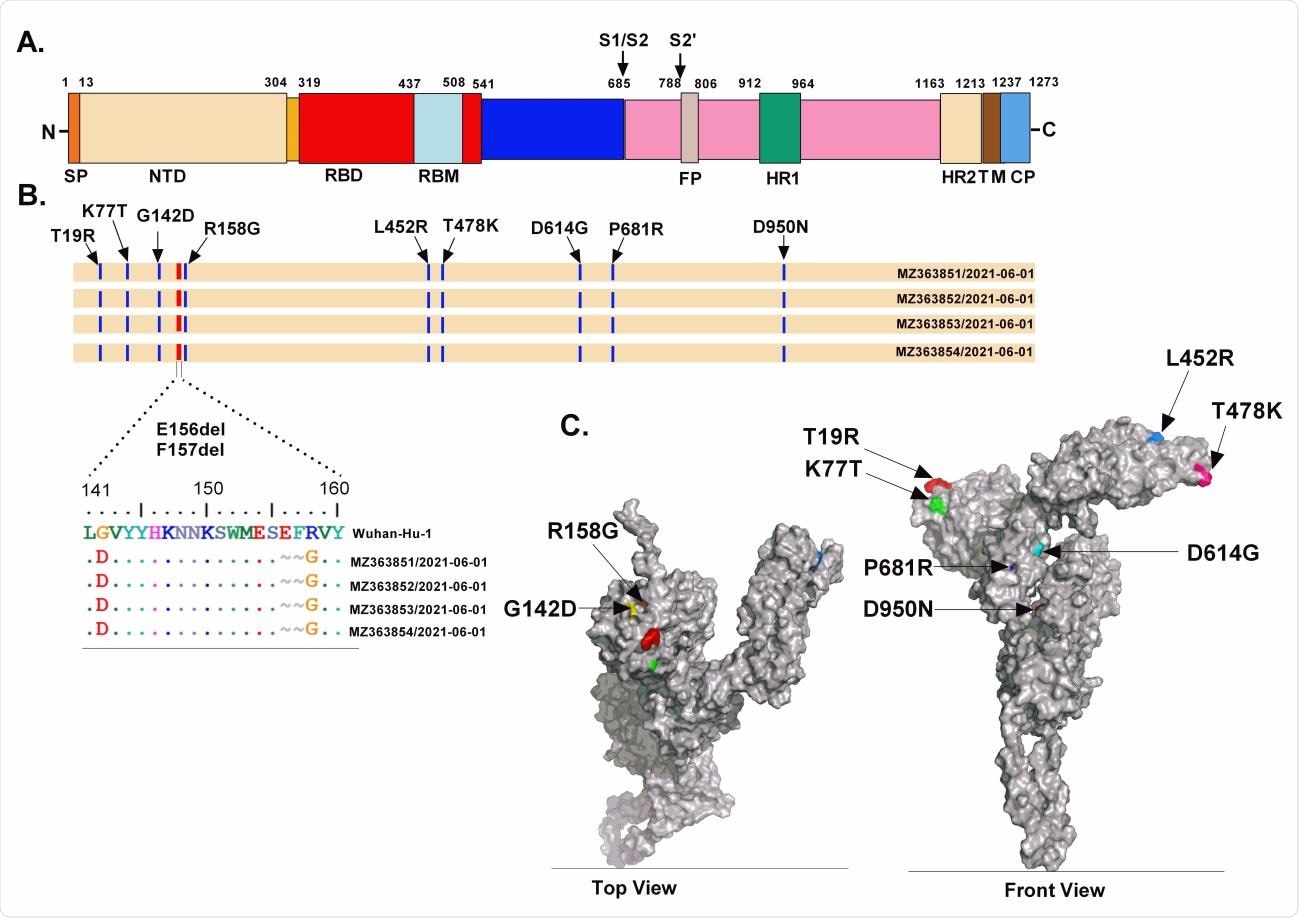There is evidence of severe acute respiratory syndrome coronavirus 2 (SARS-CoV-2) infecting animals such as ferrets, fruit bats, and cats. New research led by Vijendra Pal Singh from the ICAR-National Institute of High Security Animal Disease in India suggests it might be time to vaccinate the big cats as well. Their report details SARS-CoV-2 infection in nine Asiatic lions caused by the SARS-CoV-2 Delta variant (B.1.617.2).
“We reported the first confirmed natural SARS-CoV-2 infections in Asiatic lions (Panthera leo persica) in India, which were caused by a delta variant (B.1.617.2 lineage). This finding justifies increased surveillance for this VOC in other wild species, as well as strict biosecurity measures to check sick/asymptomatic handlers/keepers/visitors from entering the area,” concluded the researchers.
The study “Natural infection of SARS-CoV-2 delta variant in Asiatic lions (Panthera leo persica) in India” is available as a preprint on the bioRxiv* server.

 This news article was a review of a preliminary scientific report that had not undergone peer-review at the time of publication. Since its initial publication, the scientific report has now been peer reviewed and accepted for publication in a Scientific Journal. Links to the preliminary and peer-reviewed reports are available in the Sources section at the bottom of this article. View Sources
This news article was a review of a preliminary scientific report that had not undergone peer-review at the time of publication. Since its initial publication, the scientific report has now been peer reviewed and accepted for publication in a Scientific Journal. Links to the preliminary and peer-reviewed reports are available in the Sources section at the bottom of this article. View Sources
Detection of Delta in lions
India had undergone a surge of infections earlier this year due to the emergence of the Delta variant. In addition, reports of infections in Asiatic lions occurred in the last week of May 2021.
Lions suspected of SARS-CoV-2 received nasal swabs and rectal swabs to confirm infection. In addition to fecal samples, all material was sent to the ICAR-National Institute of High Security Animal Diseases in India for molecular testing.
SARS-CoV-2 was detected in nine lions, and they all tested negative for Canine Distemper Virus, confirming the infection was SARS-CoV-2 only.
The endangered Asiatic lions experienced a loss of appetite, nasal discharge, and coughing. Of the nine infected, two —Neela and Pathbanathan — died on June 3 and 16, 2021, respectively.
Molecular characteristics of SARS-CoV-2 Delta variant in infected lions
Complete SARS-CoV-2 genomes with high coverage were produced from nasal swabs of the Asiatic lions. They were evaluated alongside SARS-CoV-2 genomes available from GISAID that collected genomes from January 1, 2021, to June 11, 2021. Based on the available data, the researchers constructed a phylogenetic tree.
Four infected Asiatic lions with confirmed infection had SARS-CoV-2 sequences with 24 amino acid substitutions and 2 deletions. The amino acid substitutions were observed across multiple SARS-CoV-2 proteins.
The SARS-CoV-2 spike protein had 9 amino acid substitutions and 2 deletions compared to the original SARS-CoV-2 strain first detected in Wuhan, China.
They also had the K77T substitution in the N-terminal domain of SARS-CoV-2, which has been found in 24 countries at a low frequency but reported in 27.42% of the Delta lineage in Tamil Nadu, India. These sequences most resembled the Delta SARS-CoV-2 variant.
The SARS-CoV-2 spike mutations, including the E156del, F157del, and R158G deletions and NS3 substitutions, were discovered in all four lion sequences but not in human virus sequences from the same geographic area.

(A) shows schematic representation of functional domains of the spike (S) protein for SARS-CoV2 Wuhan-Hu-1; (B) A comparison of amino acid changes detected in the S protein of SARS-CoV-2 in Asiatic lions with respect to Wuhan-Hu-1 reference sequence (EPI_ISL_402124); (C) Mapping of amino acid substitutions noted in Asiatic lion SARS-CoV-2 (GenBank accession no. MZ363851) on to the structural model of S protein, build using I-TASSER (Iterative Threading ASSEmbly Refinement) on a template (PDB: 6acc) (Yang et al., 2015).
Lion to lion transmission is possible
The zoo containing the infected lions was closed to the public, and no new animals were taken into the zoo. The zookeepers consistently used personal protective equipment. The viral genome sequences of four lions matched with a SARS-CoV-2 sequence from a patient living in the same geographical region.
Conversely, 7 of the 9 infected lions lived in the lion habitat of the zoo with shared resources to shelter, food, and water. In addition, two lions who serve as display animals shared a common moat. The researchers suggest the shared habitat and multiple opportunities for physical contact suggest the virus was spread to other lions through lion-to-lion transmission.
The team advises zoos housing lions and other wild species to undergo strict measures to limit the number of visitors and handlers that are sick and potentially transmit the virus.

 This news article was a review of a preliminary scientific report that had not undergone peer-review at the time of publication. Since its initial publication, the scientific report has now been peer reviewed and accepted for publication in a Scientific Journal. Links to the preliminary and peer-reviewed reports are available in the Sources section at the bottom of this article. View Sources
This news article was a review of a preliminary scientific report that had not undergone peer-review at the time of publication. Since its initial publication, the scientific report has now been peer reviewed and accepted for publication in a Scientific Journal. Links to the preliminary and peer-reviewed reports are available in the Sources section at the bottom of this article. View Sources
Journal references:
- Preliminary scientific report.
Mishra et al. Natural infection of SARS-CoV-2 delta variant in Asiatic lions (Panthera leo persica) in India. bioRxiv, 2021. doi: https://doi.org/10.1101/2021.07.02.450663, https://www.biorxiv.org/content/10.1101/2021.07.02.450663v1
- Peer reviewed and published scientific report.
Mishra, Anamika, Naveen Kumar, Sandeep Bhatia, Ashutosh Aasdev, Sridhar Kanniappan, Abelraj Thaya Sekhar, Aparna Gopinadhan, et al. 2021. “SARS-CoV-2 Delta Variant among Asiatic Lions, India.” Emerging Infectious Diseases 27 (10): 2723–25. https://doi.org/10.3201/eid2710.211500. https://wwwnc.cdc.gov/eid/article/27/10/21-1500_article.